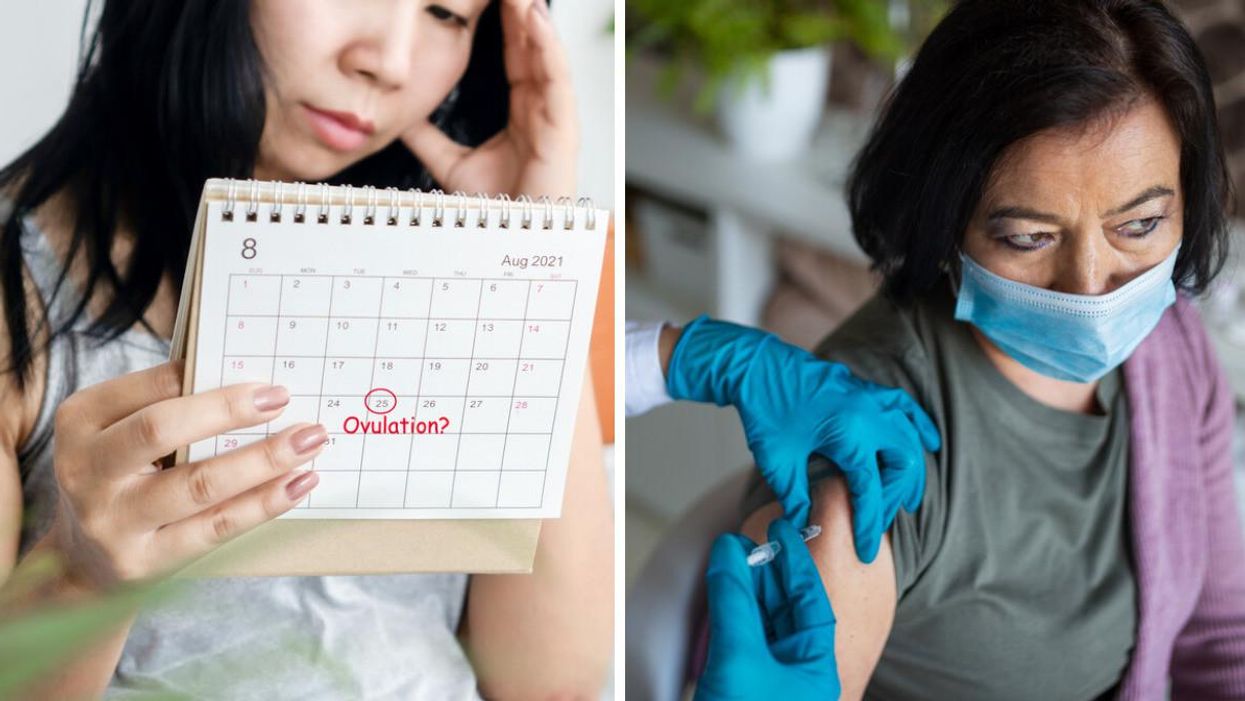COVID-19 Vaccines May Change The Length Of A Person's Menstrual Cycle, A New Study Says
The study says it's a small, temporary menstrual change.
Findings from a new study suggest that a person's menstrual cycle may temporarily change after getting a COVID-19 vaccine.
Vaccination "is associated with a small change in cycle length but not menses length," concluded the study, which appeared in the peer-reviewed journal Obstetrics & Gynecology.
Researchers saw a nearly one-day increase in the length of time between bleeding, although they did not see an increase in the number of bleeding days.
The authors pointed out that menstrual cycles are not always consistent and tend to change every month.
“We included U.S. residents aged 18–45 years with normal cycle lengths (24–38 days) for three consecutive cycles before the first vaccine dose followed by vaccine-dose cycles (cycles 4–6) or, if unvaccinated, six cycles over a similar time period,” said the study.
"It is reassuring that the study found only a small, temporary menstrual change in women," said Diana W. Bianchi, a director of the National Institutes of Health, which funded the study.
"These results provide, for the first time, an opportunity to counsel women about what to expect from COVID-19 vaccination so they can plan accordingly,” Bianchi said.
Bianchi noted that there previously hadn't been much research done on how COVID-19 vaccines, or vaccines for other diseases, can affect the menstrual cycle.
The study had 3,959 participants, of which 2,403 were vaccinated and 1,556 were unvaccinated.
Most of the vaccinated individuals had received either the Pfizer vaccine or Moderna vaccine. Receiving one dose of a vaccine was associated with a menstrual cycle increase of 0.71 days, and the second dose with an increase of 0.91 days.
The study said those who received two doses in a single cycle appeared to experience a longer change (of 2 days, on average) but noted that the change appeared to be temporary.
The study also acknowledged that research is still needed to determine the effect of COVID-19 vaccines on other aspects of a woman’s menses, such as irregularities in bleeding and associated symptoms.
- Spain Plans To Offer 3-Day Menstrual Leave For People With Painful Periods In A Major First - Narcity ›
- Pfizer Vaccine: Canadian Vaccine Expert Speaks On Risks & Benefits Of 'Promising' Vaccine - Narcity ›
- Jagmeet Singh's Vaccine Dose Gave Minor Side Effects But He's OK - Narcity ›
- Here's Canada's Official Advice On What To Do During & After Getting Your COVID-19 Vaccine - Narcity ›
